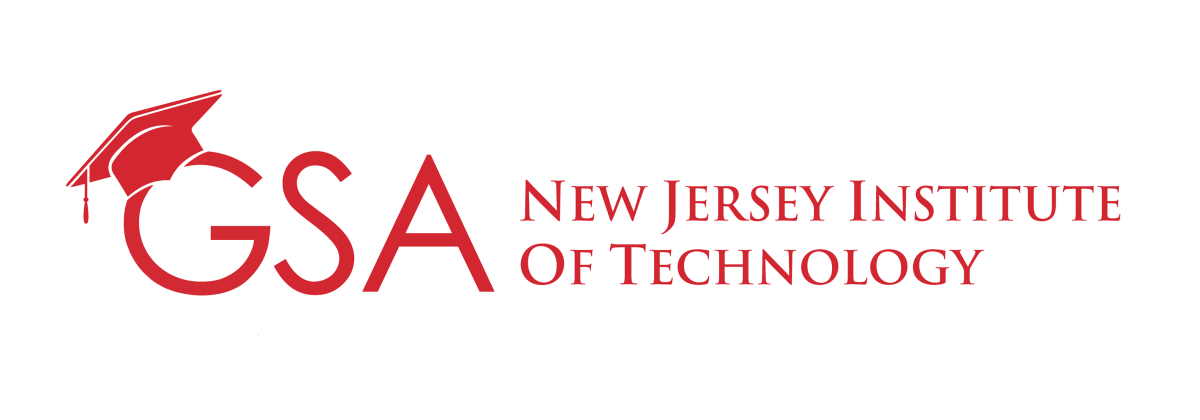Though the majority of NJIT’s student population consists of undergraduates, the 2,200 graduate students enrolled last fall represent an equally important part of the campus community—they bring new industry, research and educational opportunities for our university.
Ludvik Alkhoury, the president of the Graduate Student Association (GSA), wants to ensure that those pursuing advanced degrees remain represented. “Their voice needs to be heard—this is their only platform.”
Alkhoury’s executive board has faced challenges in helping to revitalize the organization. “Unfortunately, before, GSA was not really active,” he said. “When I first came, it was so bad to see that undergraduate students were represented, but graduate students were not… This is my mission, to be part of an organization that works for the students.”
He remembers that he sorely missed the presence of the GSA as a Committee for Graduate Education member discussing dependent life insurance. “If you have a wife and kids, they won’t give [life insurance] to your family as a PhD student… We were sitting at the table, trying to negotiate, and everyone was like, ‘Where’s GSA? What do they think? They’re not doing anything about it.’ I felt so bad, because I was a graduate student.”
He credits the foundational work of recent boards. “Last summer semester, there was a very good team – Esther [Zipori] and Akin [Aguda]. They asked me to join, and we worked together.” Among the changes the team implemented was shortening the 500-page constitution to a 5-10 page document. “We have representatives all over the campus, where before we were a little weak in representation… We need to listen to the students—it’s very important—because before, no one was listening to the students,” he said.
The goals of the GSA? “We need to ensure the well-being of the students; we need to prepare them to be safe here on campus, to be safe here in general—it’s not just physical safety, but it’s also mental safety, and we’re trying to run workshops now in collaboration with Public Safety,” said Alkhoury.
A keystone initiative is supporting career development for the students. He continued, “We need to prepare them also for work, because… students ask, ‘What’s after graduation?’” Last semester, GSA hosted a Research Day, hosting 60+ students to present their research and invited a guest from Facebook to speak about his work on artificial intelligence.
Alkhoury especially wants to provide support for international students adjusting to a new environment. “What we’re trying to do with GSA is to change their mindset—you can make a big difference, even if you’re coming from somewhere else. If you see something going wrong, you can talk about it, and your voice should be heard.”
While the GSA is responsible for the educational and extracurricular experience of graduate students, the joint Rutgers-NJIT union, United Council of Academics (UCAN), serves to support their work experience. This is why Alkhoury believes that recent protests on fees and late paychecks are better handled by the union. “If there’s something GSA can help with, [students in contact with the union] can come to our General Assembly meetings and PhD clubs,” he said. “Let’s leave it to the union to negotiate, because this is their goal and their mission.”
Right now, the primary goal of Alkhoury’s executive board is to stabilize the club’s presence. “Our top priority right now is to have a working organization,” he said. “Our second is to have continuity.” For the administration, Alkhoury promises a community of student liaisons that can provide data-driven feedback on university admissions: “Before, you could go on any [university] committee website, and next to ‘Graduate Student Association [Representative]’ you would see ‘TBA.’ Now, you see names. Those roles are filled.”
To university leadership, Alkhoury has this message: “A university without students is not a university… My mission, and I assume everyone’s mission here, is to serve students in general… You want to try to give students the best experience on campus. The administration—the Deans, the Provost—don’t really have time to entertain students. The role of GSA is to work together with the administration and the student body… to provide the best experience for the students.”
For students, Alkhoury says that the GSA will “help you grow and see others grow, but it will also help you develop leadership. This you cannot find everywhere.”
The GSA encourages students to make use of its resources to run events and start clubs. GSA meetings are every other Wednesday including 2/26, 4-6 PM at CC 235.





































